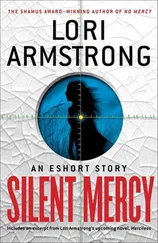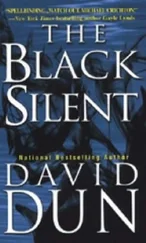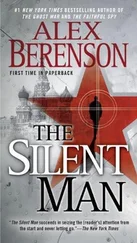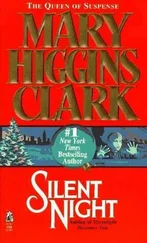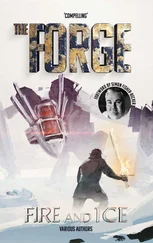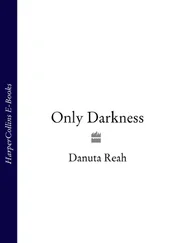A random killer. They couldn’t exclude that possibility, Barraclough knew. A Peeping Tom in the park, someone who. had been watching Emma, watched her having sex with her boyfriend, got his own ideas about what he wanted to do. If Emma had gone to Shepherd Wheel willingly … she looked back through copies of the witness statements they’d managed to get so far. A dog walker had seen a woman answering Emma’s description walking towards Shepherd Wheel at around ten-thirty the morning of her death – Barraclough still couldn’t understand it as a rendezvous, a place to have sex. It seemed dark and uninviting. ‘Sticks a knife in her instead of his dick,’ Corvin said.
‘Someone who felt guilty – wants to be caught?’ Barraclough didn’t like the idea of a random killer – none of them did. These were the most difficult cases, and often the most high profile.
‘What about the father?’ Corvin made the logical follow-up to Barraclough’s point.
Brooke stepped in again. ‘Dennis Allan. Nothing recent, no social services reports. But he did time in 1982. Drink-driving conviction. Killed a kid; he got a year. We talked to him last night, just a preliminary. He’s coming in first thing. Steve, you do that interview. We need to know exactly why she left home.’ He paused for a moment, then answered the unspoken question. ‘He’s not in the clear, not by a long chalk.’
‘What happened to Emma’s mum?’ Corvin again.
Brooke looked at the team for a moment. His glasses caught the light, masking his expression. ‘She took an overdose. Died. The verdict was accidental death.’ A murmur ran round the room.
‘Guilt,’ Barraclough said.
Emma’s father was a small man in his early fifties. He was very unlike his pretty, fair-haired daughter. What hair he had was gingerish, streaked with grey. His face was puffy, the broken veins on his cheeks standing out against his pallor. He looked unhealthy and uncomfortable. He didn’t look, to McCarthy, like a bereaved parent. Emma’s record told a story that McCarthy didn’t like. Something had gone seriously wrong in her life, long before these events, long before her mother’s death. Emma wasn’t simply a teenager traumatized by bereavement.
They had gone through the formalities and had already established that Allan had no alibi for the previous morning. ‘What was I doing?’ he said, apparently surprised at the question. ‘I worked night shift. Came home and went to bed.’ No one had seen him, apart from the newsagent at about eight. He’d nipped in to the shop for a paper and some cigarettes. He began to look uneasy as the implications of McCarthy’s questions dawned on him. His face got more colour and his eyes went pinker round the lids. McCarthy waited to see if he would object, but he said nothing, just twisted his hands nervously.
‘Can we go back a few weeks, Mr Allan?’ McCarthy decided it was time for him to build up the pressure a bit. ‘I understand you lost your wife …’
‘In March, end of March.’ The man seemed pathetically eager to tell him.
McCarthy had the date in front of him. March 29. Dennis Allan had come off his shift at six that morning and found his wife dead. ‘I’m sorry.’ A necessary formality. ‘Could you tell me what happened? In your own time, Mr Allan.’
The man’s eyes got pinker, and he blinked. ‘Sandy, my wife, she …’ He seemed to be having trouble putting the words together. ‘She was ill, see, you know, in her mind. All through our marriage it was a problem. She was on pills, but they didn’t always work – made her dopey, so she’d stop them, and then …’ He looked down at his hands, twisting them together. McCarthy steepled his fingers against his mouth and nodded. Dennis Allan looked at him. ‘She was always, I mean she …’ He swallowed. ‘She used to try and harm herself, you know?’ McCarthy nodded again. ‘She didn’t mean it, not like that, not really, but when things got on top of her, she’d take her pills, you know …’ His eyes sought out Tina Barraclough’s, then McCarthy’s, looking for their understanding.
‘She’d take an overdose?’ Barraclough prompted.
He looked grateful. ‘She didn’t mean it,’ he said.
‘But this time?’ McCarthy watched the wash of colour that flooded the man’s face.
‘She took a lot of pills. And with some drink. She did it while I was at work. She …’ He put his head in his hands. A display of grief, natural for a man talking about such a recent bereavement, a man doubly bereaved. McCarthy wondered why he wasn’t convinced. He waited, aware that Barraclough was hovering on the brink of saying something to the distressed man. He shook his head slightly, and she sat back. McCarthy could detect disapproval in her set face. After a minute, Allan spoke again. ‘I found her. When I came back from work. I don’t know if she meant it.’
‘And Emma?’ McCarthy prompted quietly.
‘Emma just … She packed her bags that same day. Wouldn’t speak to me.’ He looked at the two officers, trying to gauge their understanding. ‘She just left. I tried to contact her at the college, but they said she’d never enrolled. Didn’t even come to her own mother’s funeral.’ His voice was bewildered.
The search for Lucy the day before had identified witnesses who remembered seeing Emma in the park, round about the time Jane Fielding said that she and Lucy had left. A woman walking back from delivering her daughter to school saw Emma and Lucy in the playground near the gate, and had wondered why Lucy wasn’t at school. There was a dog walker who remembered a young woman answering Emma’s description on the path to Shepherd Wheel, walking fast: ‘I noticed her because she looked a bit anxious.’ She had been alone. He was quite certain she had had no child with her. So what had happened to Lucy? McCarthy hoped the key would lie in the interview that the child protection team had recorded the evening before, shortly after a tired but otherwise unharmed Lucy had turned up in the woods half a mile above Shepherd Wheel.
But Lucy’s story was confusing and inconclusive. She was very young – just six – and fantasized and wove the things that happened to her into stories and daydreams. The child protection officer, Alicia Hamilton, was able to clarify some of the more puzzling aspects of her story. ‘It could be something or nothing,’ she had said as she discussed the tape of Lucy’s interview with the team, ‘but it seems that Emma invented this game of chasing the monsters. But there’s a bit more to it than that.’ Then Emma went to chase the monsters and I went to the swings. Well, she did but I ran away.
‘That bit’s interesting.’ Hamilton had stopped the tape. ‘It takes a while to sort out – you’ll see in a minute – but it looks as though Emma had a bit of a scam going. According to Lucy, Emma would go and chase off the monsters, and Lucy would stay in the playground. Then, as long as she was good, Emma would get her an ice cream.’ Lucy’s story was clear to this point, even to the point of knowing that whatever Emma was doing, it was dangerous.
I told her. One time, two times, three times. Then they get you.
But later on in the tape, the child’s fantasies became impenetrable.
Why did you go into the woods, Lucy?
Because the monsters. Because the Ash Man …
Tell me about the Ash Man, Lucy.
He’s Tamby’s friend. Only not really. Tamby’s my friend.
Who’s Tamby, Lucy?
He’s my friend.
What about the Ash Man?
The Ash Man … the Ash Man is Emma’s friend.
Tell me about him.
I said. He’s Emma’s friend. And Tamby is, too.
‘Her mother says that these are characters in her stories. “Tamby” is someone she pretends to play with in the garden and in the park. This “Ash Man” is some kind of giant or ogre …’ McCarthy felt his head begin to ache. Hamilton went on. ‘It isn’t all fantasy. There was someone – someone must have taken her up to the Forge Dam playground. It’s too far for a little thing like that to walk to by herself. And someone gave her money to buy ice cream. But who it was, Lucy can’t – or won’t – tell us.’
Читать дальше

